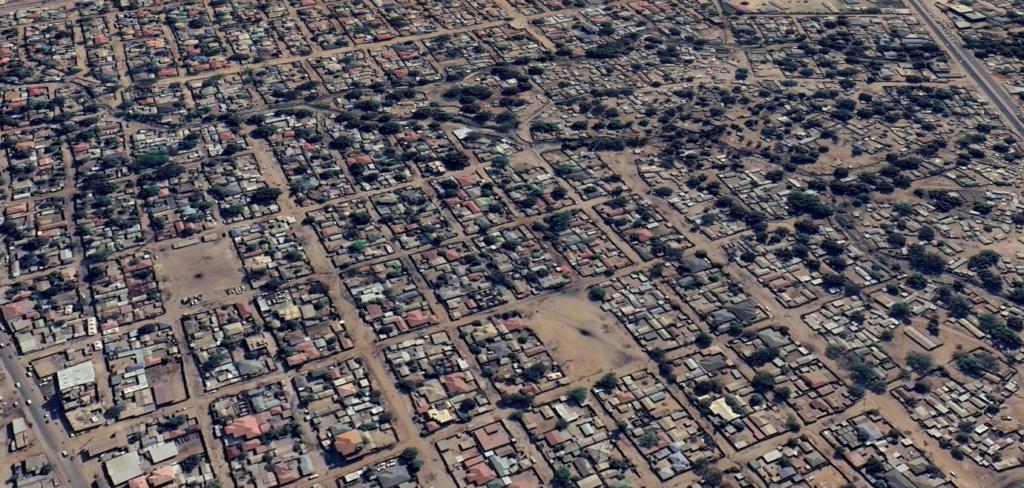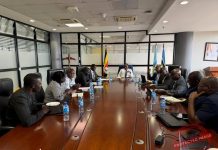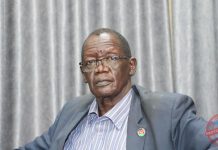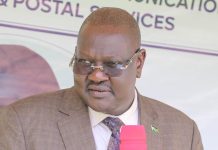Africa-Press – South-Sudan. South Sudan’s preparations for December 2024 elections are overshadowed by a significant hurdle – the safe return of displaced people. A key requirement of the revitalized peace agreement signed in September 2018 is the repatriation and resettlement of millions forced to flee the civil war that begun with killings and land grabbing in December 2013.
The United Nations estimates nearly 4.4 million South Sudanese remain displaced – 2 million internally and 2.4 million refugees in neighboring countries. President Salva Kiir Mayardit has repeatedly urged their return, promising security and resettlement assistance.
In February 2023 for example, Kiir told a group of displaced citizens at a meeting held at Freedom Hall that his government “will provide security and would work jointly with partners to organize logistics around what is needed to resettle successfully in those areas.”
However, interviews with displaced persons reveal a persistent challenge – land disputes. Many returning citizens find their homes occupied, often by powerful individuals serving in the country’s army, the South Sudan People’s Defense Forces (SSPDF) and other “organized” forces.
Kur Gatdet, a displaced person from the country’s Unity State, said he fled the war in 2014 and returned from a Kenyan refugee camp in 2020. He found his house occupied and legal efforts to reclaim it were unsuccessful and asserted that it remains unsafe for him, and several others interviewed by Sudans Post to live outside the former UN protection of civilian site in Juba.
“It’s unsafe to be outside the Protection of Civilian area,” Gatdet said, referring to the UN camps. “Many people have homes outside, but they’ve been taken over by other groups. This is why many of us remain in the PoC. Even in Juba, security is lacking as those who occupy the houses wield power and can use it against rightful owners. Ordinary citizens like us have no means to resist. It’s too risky to attempt to reclaim our homes as the occupiers may cause harm. Therefore, we refuse to return home until the situation improves,” Gatdet added.
Wani, a government official by day and displaced person by night, described a similar situation. Fleeing the 2013 outbreak of violence, he found his Juba home occupied by a military officer upon his return in 2016. Court efforts to regain possession proved futile.
“I was in Juba town when the war broke out on the night of Sunday, December 15, 2013. I couldn’t return home by then and I was locked in a office until I was escorted by military vehicle to the UN House on December 16 and there, I met my children. I didn’t see my house until 2016. I went there for a visit because I was told my house is being occupied. I found there is a military officer. He was a major and he was wearing Tiger badge at his arm and expelled me,” Wani said.
Wani said that after several attempts on court, the occupants kept dodging summons and had to give up in order not to lose his job.
“I have tried to go to court since 2021. The court has been issuing summons to the person and he couldn’t come. At one instance, police went into his house, but he threatened to fight them. I left the issue because I didn’t want to lose my job and also for my own safety. That’s why I am still living at the IDP camp in Juba.”
Anna Paul Modi, a mother of five children, is a returnee from Sudan. She travelled to Khartoum when her husband was killed in a traffic accident for funeral.
Upon return last year, she found her house was occupied by a SSPDF general who threatened that she “would end up in jail with here [property] papers.”
“I am staying in Hai Tarawa, but my land is in Gurei block 1. When I came back from Khartoum, I went to see my land. I learnt that after the war my home was destroyed. And Someone was already staying in my land. I told him. Mr., this plot you are staying in is mine. He insisted it was his own. I asked him when he acquired the plot and what proof he had. We were given surveyors to go with us to confirm the rightful owner of the land. I did not even direct the surveyors but because of the token note I had they followed showed me that it was my land.”
According to her, the man who occupied her land refused to vacate because of her gender status. Modi was advised to file a case at the Payam seeking redress on her case. The alleged intruder was severally summoned to appear before the Payam authorities but to no avail. When the suspect landgrabber finally appeared in the Payam, he was asked to provide evidence of his ownership of the land.
She explained that he presented a token note and she also presented hers, however, the Payam official after in-depth assessment said the plot in question belonged to her. After confirmation from the authorities the alleged intruder was asked to leave the plot, that he illegally occupied and was told to process the land next to the that very plot. But after some time, the man was seen raising serious and permanent structures in the same disputed land.
“I went and found him building concrete structures and a toilet. I asked, ‘Why are you doing this to me?’ I reminded him of the order from the Payam. But he told me how I cannot stop him from building. He told me it is just a matter of paying money to the authorities and then the case closed. He said I would end up in jail with my papers. I was referred to the high court. I was given a lawyer to whom I handed my papers from the Payam. He told me since last year that would be called, and my case would be heard. Until now I have not received any call. I think it because I do not have the money.”
Land disputes are a major source of violence in South Sudan, casting a long shadow over the fragile peace process and potentially derailing upcoming elections. This instability stems from powerful figures, including government officials and military commanders, who are accused of exploiting their positions to seize land from civilians.
Documented incidents show military officials threatening violence against police enforcing court orders for land restitution, further weakening the rule of law and emboldening those who grab land illegally. One example of such behavior occurred in 2020 when a senior SSPDF commander threatened police officers with death. The officers had arrived at the general’s residence to enforce a court order evicting him from a civilian’s home.
The situation worsened in late 2023 when the government passed a draft land policy defining ownership as belonging to the “people” rather than specific communities. This sparked fierce opposition, particularly in Central Equatoria, whose inhabitants see it as a veiled attempt to legitimize land grabs by the central government.
The policy ignited a debate, with the Central Equatoria State government rejecting it and calling for a focus on solutions for the struggling economy and elusive peace among communities, rather than land policy at this critical juncture.
These land disputes have a direct impact on both elections and peace implementation. Unresolved disputes create deep divisions between communities, making it difficult to hold peaceful and fair elections. Displaced communities due to land conflicts may struggle to register or vote, further disenfranchising them.
Additionally, land grabbing by elites erodes trust in the government, a fundamental element of a successful peace process. Communities who feel their land rights are not protected are less likely to support peace efforts. The tensions surrounding the land policy highlight the urgent need for inclusive dialogue and power-sharing, as outlined in the peace agreement. Ignoring local concerns risks reigniting violence and jeopardizing the fragile peace.
Therefore, addressing land disputes and ensuring equitable land ownership is crucial for creating a stable environment for conducting peaceful elections and consolidating peace in South Sudan.
This can be achieved by prioritizing the establishment of a fair and transparent land administration system before elections. Additionally, ensuring communities have a voice in land policy development and that ancestral land rights are respected is essential. Finally, holding those who seize land illegally accountable, regardless of their position, would send a strong message of deterrence and uphold the rule of law.
Source: Sudans Post
For More News And Analysis About South-Sudan Follow Africa-Press






